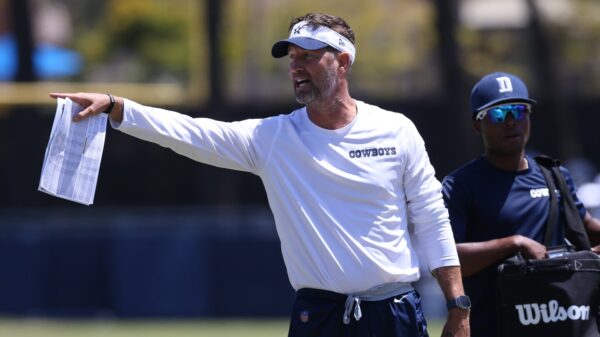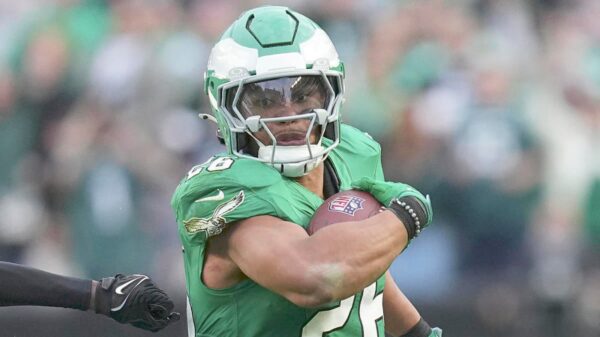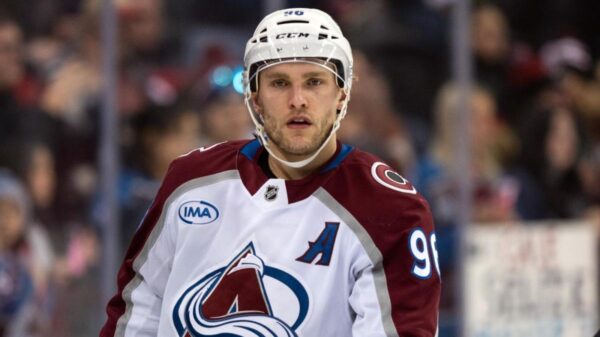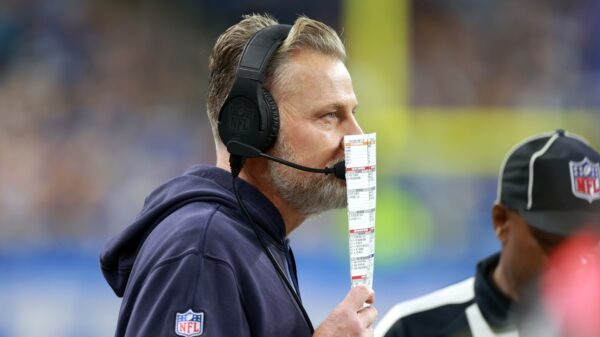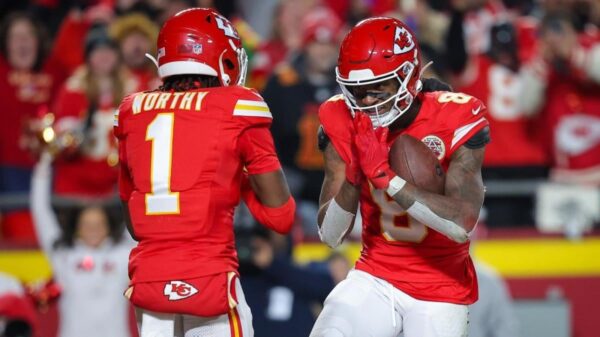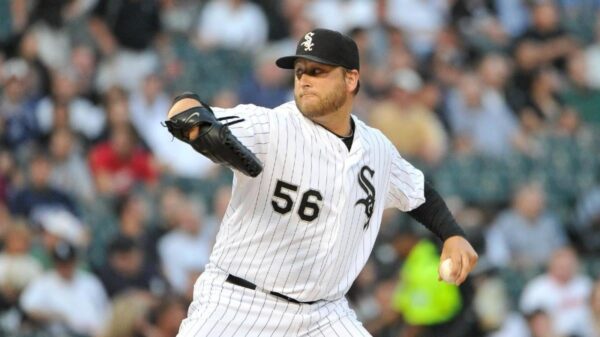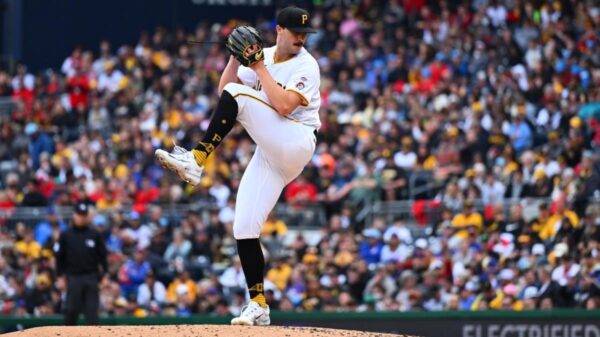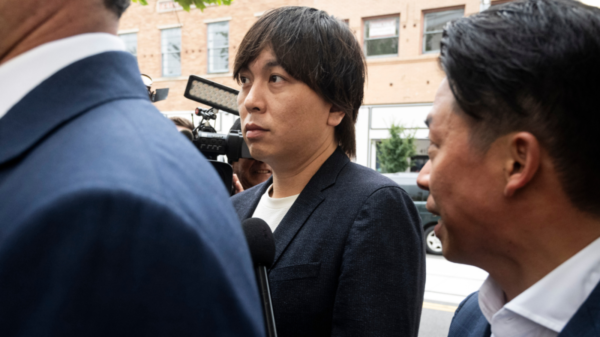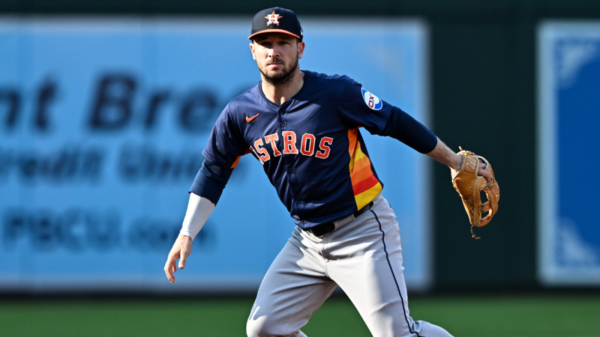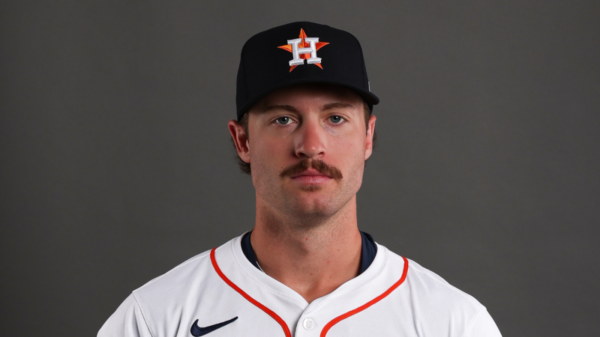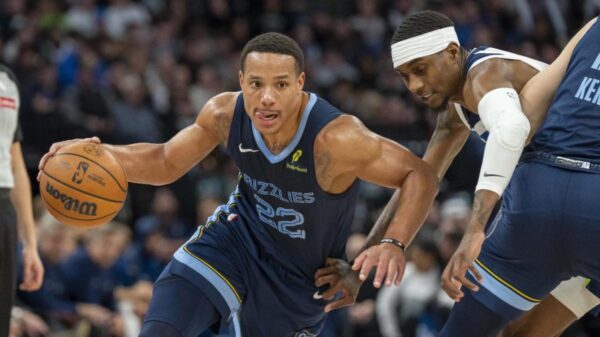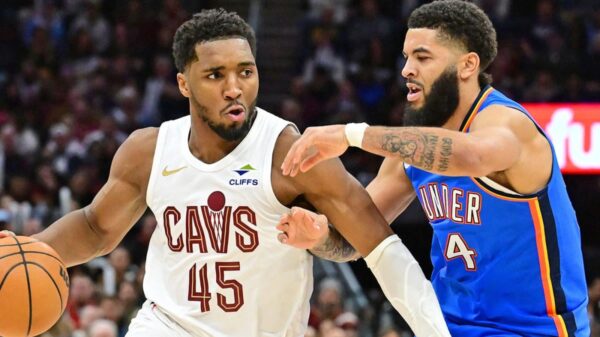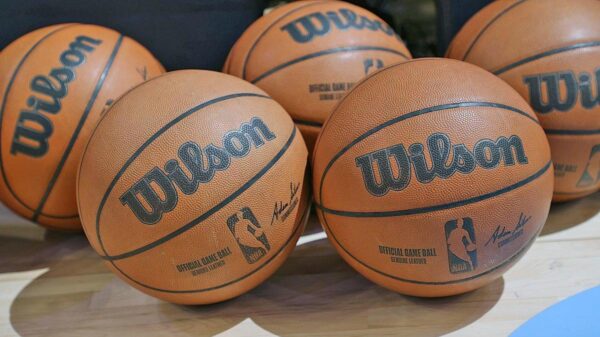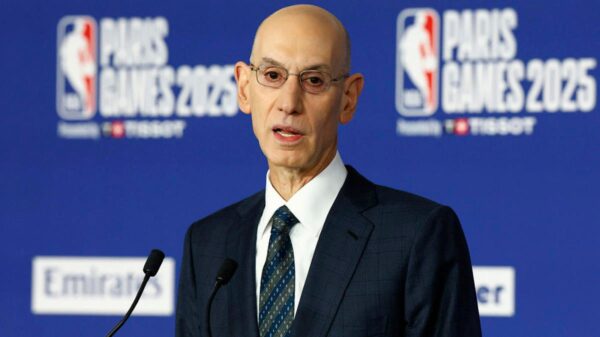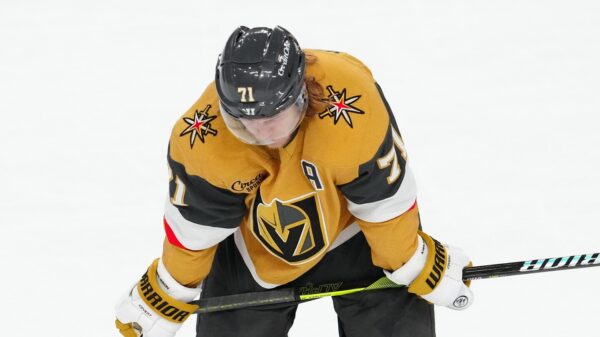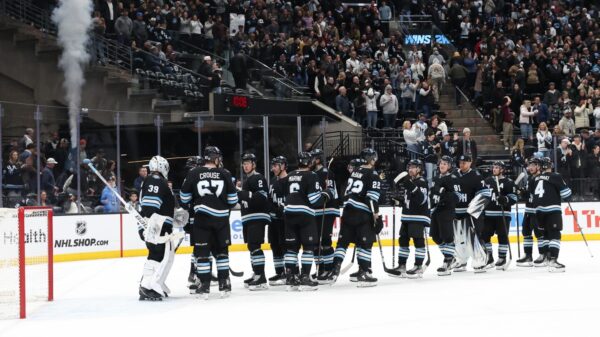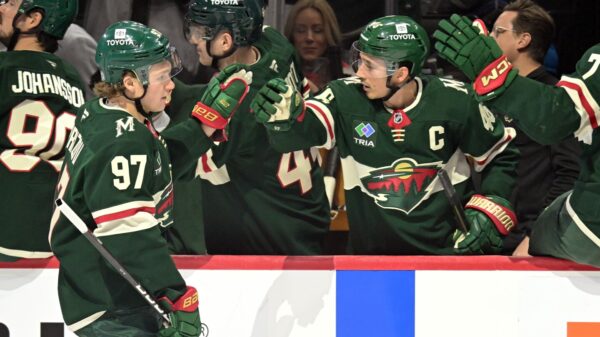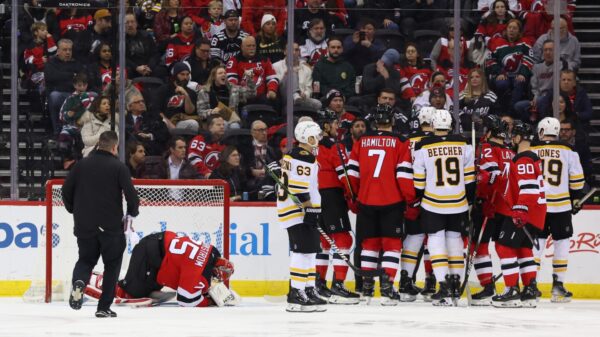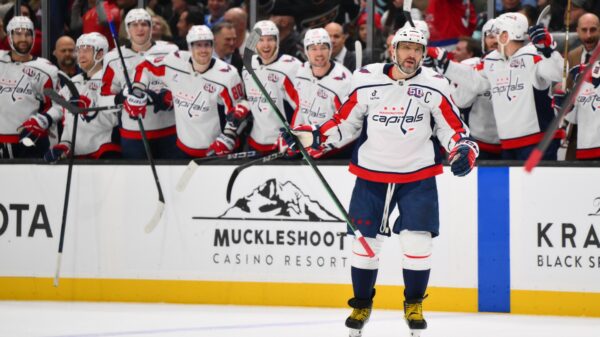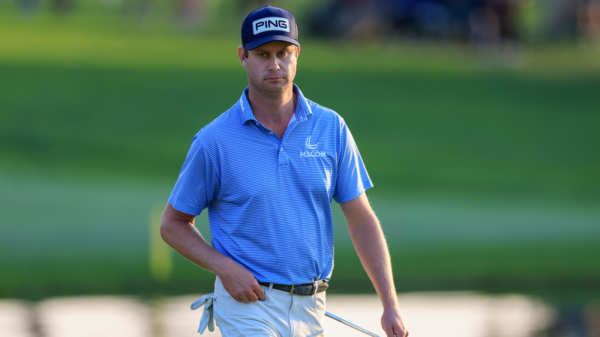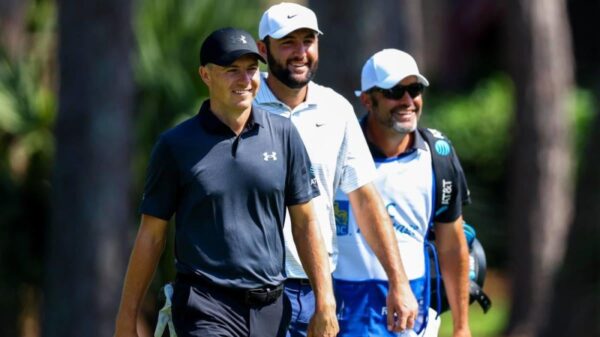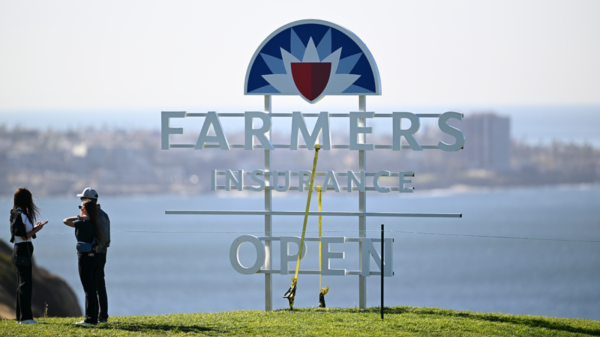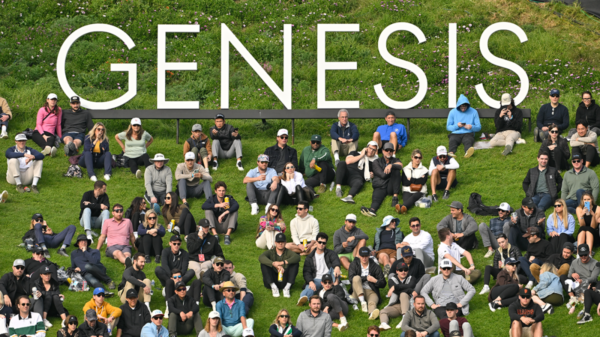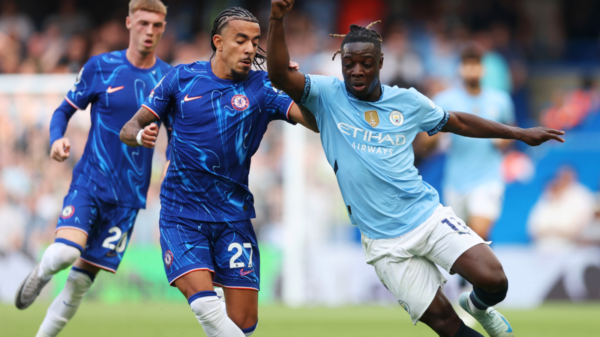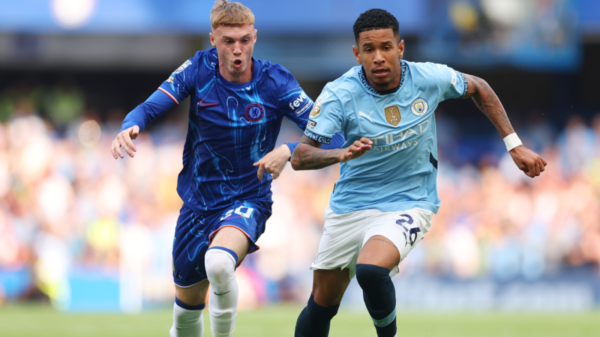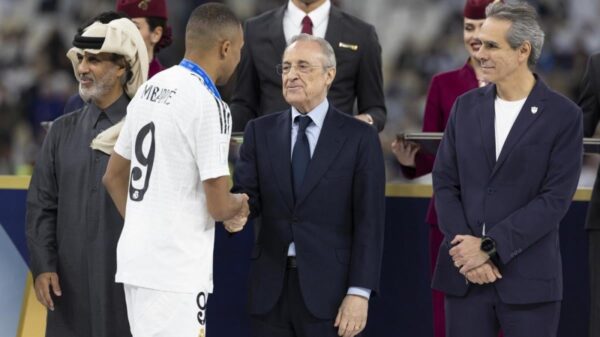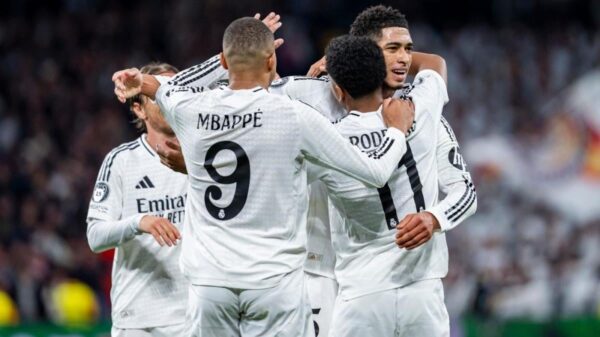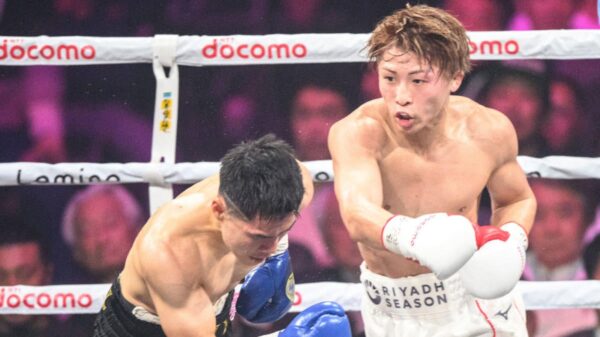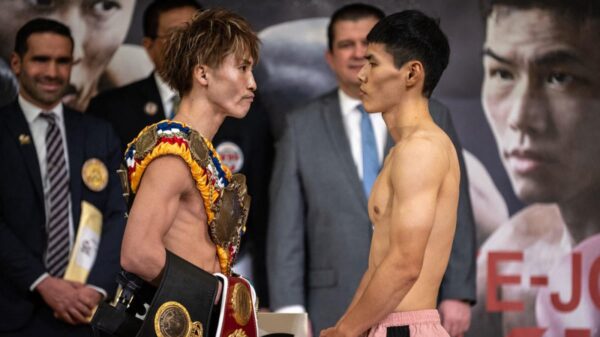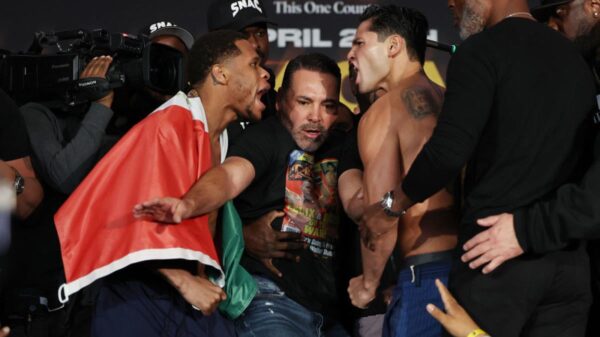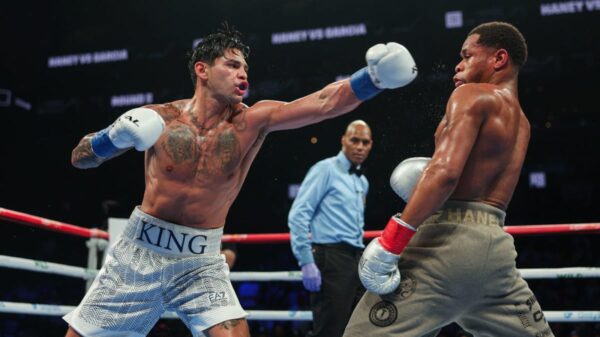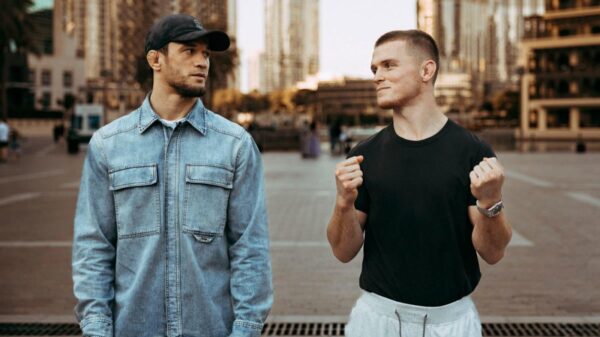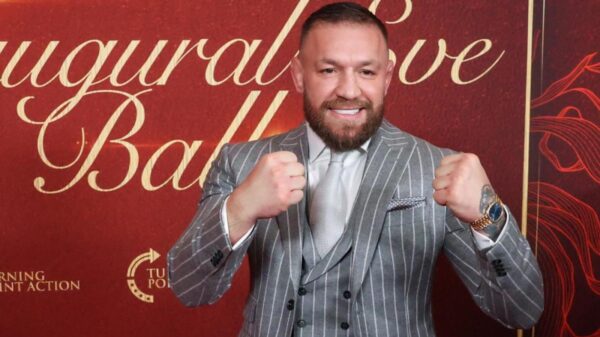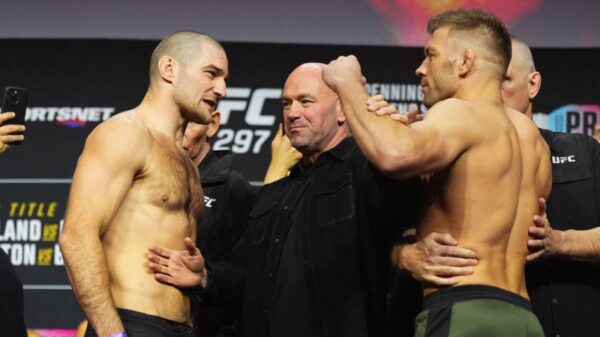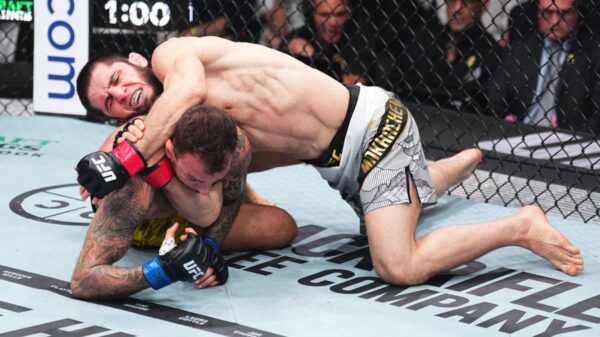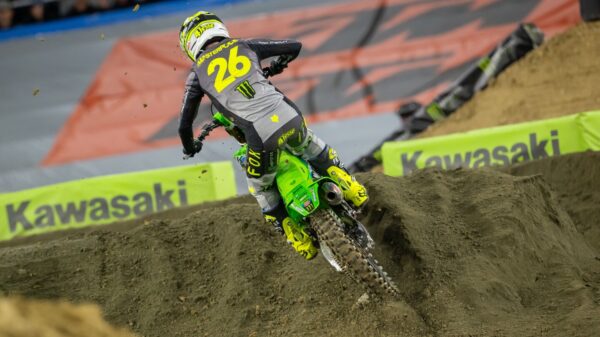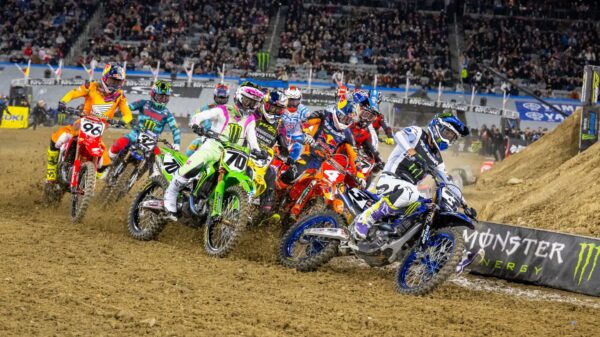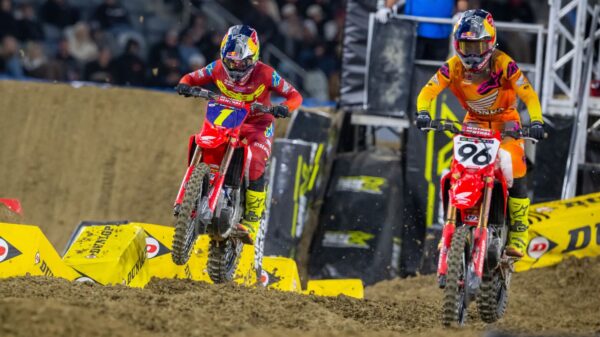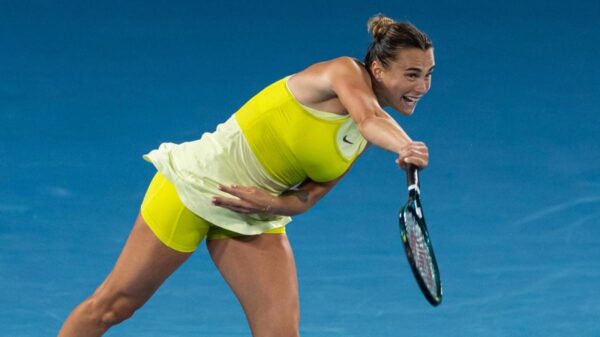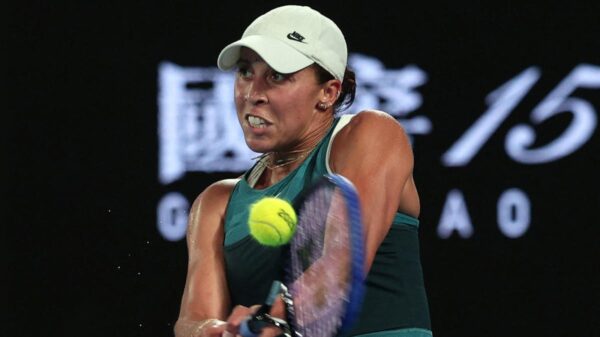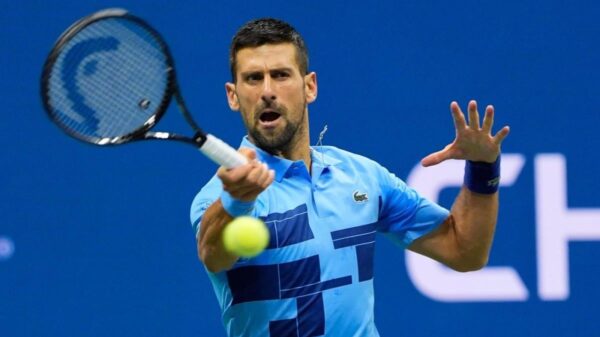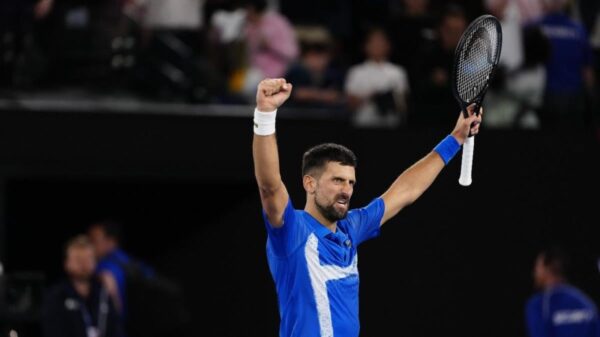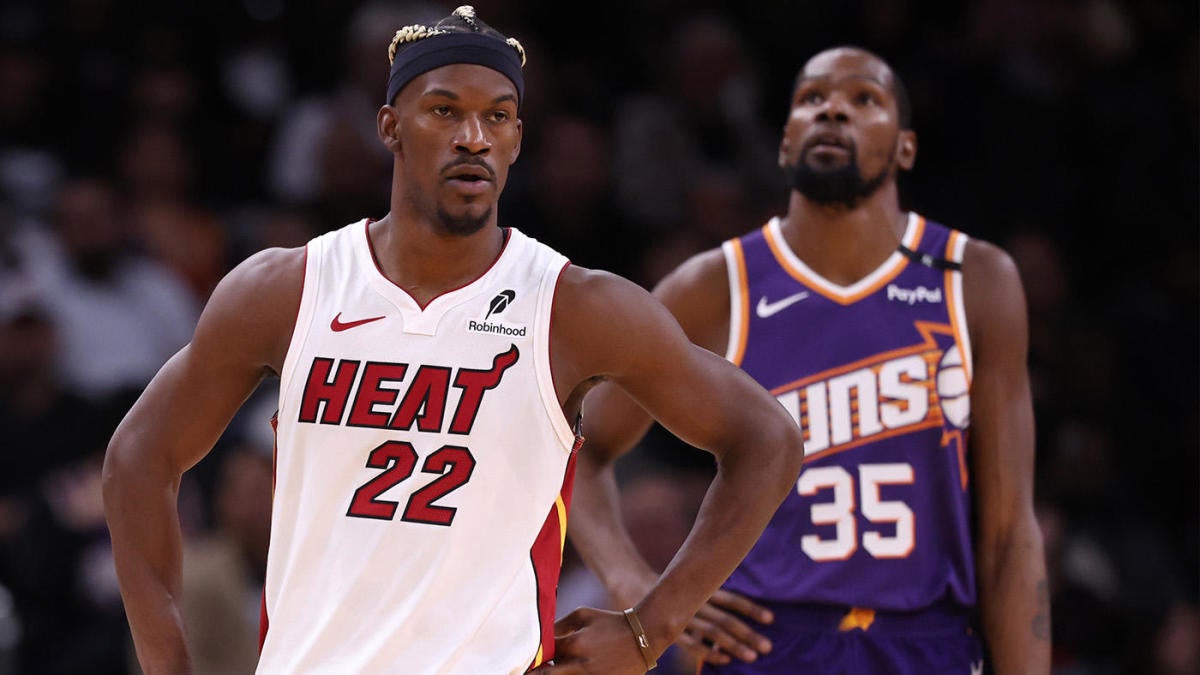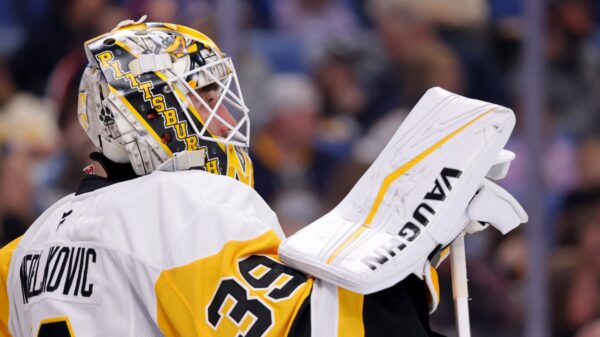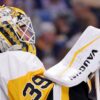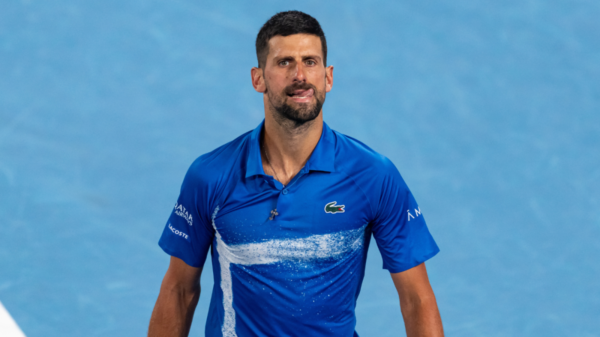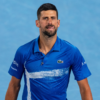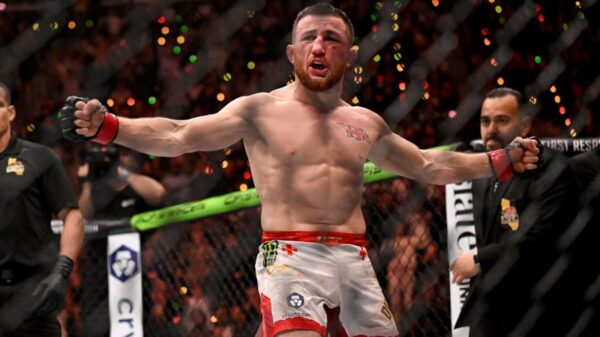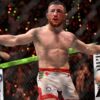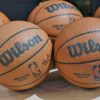Last May, Mat Ishbia delivered perhaps the boldest quote an NBA owner has given since Joe Lacob’s infamous “lightyears ahead” gaffe. “Ask the other 29 GMs — 26 of them would trade their whole team for our whole team and our draft picks and everything as is,” Ishbia said during a press conference following the first-round sweep his Phoenix Suns suffered at the hands of the Minnesota Timberwolves. “The house is not on fire. We’re in great position. It’s not hard to fix.”
What Ishbia has found in the eight months since is that it is, in fact, hard to fix. At 22-21, the Suns are, once again, outside of the championship picture. Ishbia’s preferred solution to that uncomfortable reality is seemingly a Jimmy Butler trade. Do you want to talk about a move being hard? Let’s go through all of the obstacles the Suns have already had to overcome and are still facing them in this endeavor:
- With only one tradable first-round pick and very few young players, they lacked the assets to entice multiple teams in what was always going to have to be a complicated, multi-team deal. They “solved” this problem by trading one very valuable, unprotected 2031 first-round pick to the Jazz for three external first-rounders with limited upside.
- Because they are locked above the second apron, the Suns cannot aggregate salaries in a trade. That means they have to include a player in the deal that earns more than Butler does. Kevin Durant and Devin Booker are off-limits, therefore Bradley Beal is the only viable matching salary. As it stands right now, there is no team known to be willing to take on the last two-and-a-half years of supermax money on his contract.
- Even if they found someone willing to take Beal, he would have to approve of a deal thanks to his no-trade clause. His agent, Mark Bartelstein, has indicated that, as of now, Beal has not consented to a single possible destination.
- A major point of contention between Butler and the Heat has been Miami’s unwillingness to extend his contract. While there is no reporting suggesting that an extension is either imminent upon a trade to the Suns or necessary to complete one, it seems unlikely that Phoenix would trade for the mercurial Butler without paying him the two-year, $111 million extension he is seemingly seeking.
So, does Phoenix’s disappointing season seem hard to fix? Yes, of course, and that’s with the assumption that Butler alone is even that fix. Frankly, that’s not a given. Considering both the obstacles that would need to be cleared in order to add him and the problems having him would create or perpetuate, it’s worth wondering if this wild goose chase even makes sense for the Suns.
Bradley Beal trade destinations: Which teams still make sense for Suns star as they seek Jimmy Butler deal
Sam Quinn
The simplest reason for that is just how far the Suns are from true contention. This is not a juggernaut hiding in plain sight. Yes, their 1-9 record without Kevin Durant suggests that health is a major reason for their present predicament, but Durant is also injury-prone and 36. Injuries are to be expected. The same is true for Butler. The Suns haven’t exactly been world-beaters with Durant. Phoenix’s plus-minus with Durant on the floor this season is very nearly neutral, sitting at an uninspiring plus-one through 33 games. Filter only for the minutes Durant shares with Devin Booker and the Suns still have only a plus-4.3 net rating, according to Cleaning the Glass.
Now, that number jumps to plus-10.2 when Bradley Beal isn’t in the picture, but there’s a good reason. Ever since Beal got benched on Jan. 6, Suns opponents are making only 32.6% of their wide-open 3s and 34.1% of their open 3s. These are the shots defenses have very limited influence over. Ever since Durant and Booker started playing more minutes without Beal, their opponents started missing them. Most of the success those lineups have enjoyed is based on a defensive boost that isn’t sustainable.
Wouldn’t Butler improve the defense? Well, probably, but it’s unclear to what extent. He’s a five-time All-Defense selection, but he is also 35 and statistically declining. The Heat defense is 4.7 points per possession better without him than it is with him. Pick your defensive metric and you’ll see a player that is hovering around average. By Defensive Estimated Plus-Minus, he rates as the 266th-best defender in the NBA out of 453 qualifying players. Rookie Ryan Dunn, who might have to be included in the trade, notably ranks 78th. Defensive Box Plus-Minus, Defensive Win Shares and D-LEBRON all rate him in the same ballpark: somewhere close to average. Lest you believe this is purely a symptom of his trade request, these numbers all started to trend down last season.
That decline has mostly been limited to his defense, though he is averaging fewer points per 36 minutes than he has in any season he’s spent with the Heat. His shot diet is otherwise mostly unchanged. He’s still getting to the rim. He’s still getting to the line. He never developed a steady 3-point shot, but he is still respected enough to get guarded off-ball. Considering how desperately Phoenix needs someone who can pressure the rim, there’s no denying how additive he could be with all of the shooting Phoenix has accumulated. But there are still caveats here.
The obvious is that high-volume driving, finishing and free-throw generation tend to be hard to maintain as wings age. Even LeBron James gets to the basket and the line far less than he used to. He adapted by developing a 3-point shot. Butler has not. The obvious question for a possible Butler-in-Phoenix fit is less about what he brings them today than it is how long he can maintain that production.
When stars of this magnitude unite, the common skeptical refrain is that there’s only one ball. That concept is generally overstated. It might have a shred of merit in Phoenix. Beal isn’t the only player struggling this season. Devin Booker is having his worst shooting season in ages, but he’s improved significantly since Beal was benched. It’s too small a sample to draw meaningful conclusions but remember, despite the overwhelming talent this group has, it ranked only 10th in offense last season and 12th this season. At a certain point, adding shot-creators comes with diminishing returns.
Especially when there are still other problems on this roster that need to be addressed. Who is going to be Butler’s pick-and-roll partner here? In Miami, Bam Adebayo checked a whole lot of boxes: athletic enough to generate real rim gravity, skilled enough to create out of passes into the short-roll and smart enough to improvise angles and methods of attacking weaker links on the fly. It’s not clear who Phoenix’s starting center will be when the games start to count. Jusuf Nurkic is out of the rotation. Nick Richards was a backup in Charlotte, so the odds of him blossoming into a playoff-level starter appear slim. Butler is perfectly comfortable playing iso-ball, but Mike Budenholzer has made a point of cutting down on that this year. The Suns isolated more than all but five teams last season. This year, they rank 19th in isolation frequency.
Realistically, figuring all of this out is going to be a time-consuming process. The Suns have already devoted a year and a half to figuring out the Booker-Durant-Beal fit. Starting from scratch two months before the playoffs seems suboptimal. They’d be doing it against the NBA’s hardest remaining schedule, and as the Suns learned when Durant sprained an ankle and missed 10 games soon after getting to Phoenix in 2023, one injury is all it takes to sap most of your R&D period.
If Butler and Durant were five years younger, this would be a no-brainer. Give that trio several bites at the apple and the odds of them making a real run at least once are pretty strong. In all likelihood, though, this is a short-term arrangement. It’s no given that this team will be good enough to win it all here and now. The odds of them doing so decrease with each passing year, not only due to their age but the rest of the conference. Oklahoma City has a 36-8 record and entered the season as the league’s youngest team. They’re not going anywhere. Victor Wembanyama is coming. Nikola Jokic and Luka Doncic are still here. This conference is getting stronger, not weaker.
And the Suns are probably getting thinner, not deeper. Can they make a Butler deal without including Dunn? Maybe? They now have three tradable first-round picks. One of them is going to whoever takes Beal. Are the Heat going to be satisfied with two late picks? Will there be a third team that needs to get paid off for playing some financial role in this blockbuster?
What about Phoenix’s ballyhooed point guard additions? Tyus Jones signed with the Suns for the minimum largely to showcase himself for a return to free agency over the summer. The better he plays, the likelier he is to leave. That’s true to the extent of Monte Morris as well, with the added caveat that he is likely to lose minutes once rotations shorten in the playoffs. If he does, will he want to stick around? Can the Suns replace these players with only minimum salaries at their disposal?
If you’re being charitable, the Suns do have one possible vehicle for depth addition next season. Nurkic will be in the final season of his deal. Since Ishbia doesn’t care about the aprons or the future anyway, Phoenix could potentially find a team trying to offload a longer-term contract and send them Nurkic’s expiring deal. Without knowing who might be available in a year, this isn’t exactly a reliable tool.
As with a Butler trade itself, so many stars would need to align for this to work. Older players would need to stay healthy and stave off decline. They’d need to adapt to one another quickly. They’d need to be able to sustain and/or cultivate depth in a cap environment working against them. They’d need to solve an entire position at center. And on top of that, they’d need all of the standard luck needed for a deep playoff run. Bad shooting variance three nights in a row? You’re out. The wrong call on the floor costs you a critical review? You’re out. The bracket delivers your worst possible matchup in the first round? More often than not, you’re out. Even the best teams in the NBA rarely enter the postseason with better than roughly a 20% chance of actually winning it all. Whatever Phoenix’s number would be, it would be lower.
And it would drop precipitously with each passing year. That might not mean much to Durant and Butler, who are desperate to win now, but it’s significant for the far younger Booker, who doesn’t have to operate on such a short time horizon. It might be in two or three months. It might be in two or three years. But at some point relatively soon, Butler and Durant will be done seriously competing for championships and Booker won’t be.
Jimmy Butler mock trades: Suns in position for blockbuster, but they’ll need help from Bucks and others
Sam Quinn
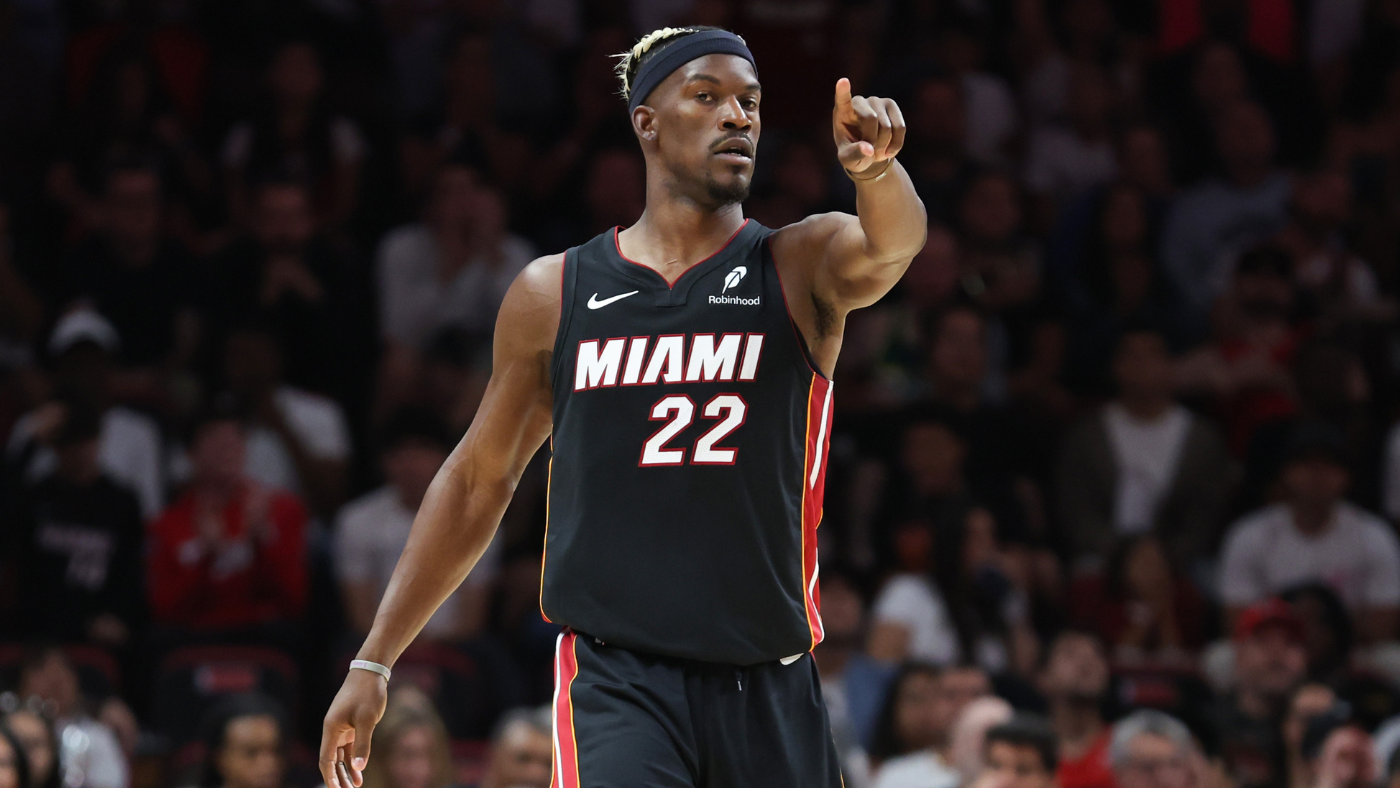
Where are the Suns then? Their single most valuable asset in the event that they had needed to retool quickly for Booker’s sake, their unprotected 2031 first-round pick, is already gone. They are, in all likelihood, staying above the apron for at least the next two seasons after this one. That means their 2032 first-round pick will move to the end of the round. If Dunn goes in the Butler trade, that’s one fewer asset at Phoenix’s disposal then. Retooling with cap space in 2027, when Butler’s extension would expire, might be feasible, but Ishbia expects Durant to sign an extension that would encroach on possible space. Either way, Phoenix has to pay Grayson Allen and Royce O’Neale more than $30 million combined that season when both will be in their mid-30s. Want to turn around and trade Butler again to get some assets back? Good luck doing so after the experience Miami is having with him.
At a certain point, if Booker hasn’t come close to winning another championship in Phoenix and he sees nothing but old and declining teammates around him, he’s going to develop a wandering eye. The Houston Rockets have essentially bet on this scenario by trading for several future Phoenix picks that previously belonged to the Brooklyn Nets. Over the summer, I wrote a story imploring the Suns to consider trading Durant when they had the chance. Doing so would have effectively closed the immediate championship window, but it’s not even clear if that window was ever really open in the first place. Trading Durant at something close to peak value would have given the Suns a chance to retool in a way that kept Booker happy for the rest of his prime.
Trading for Butler is an aggressive, Ishbian step in the other direction. You’d better hope it leads to a championship or comes close, because otherwise, You might have to trade Booker for 50 cents on the dollar down the line and try to rebuild without control over your own first-round picks for the better part of a decade. That is a nightmare scenario. It’s staring Phoenix in the face right now.
Maybe Butler really is the savior. Maybe adding him turns the Suns into the champions they’re trying to be. But I promise you this: ask 29 other GMs if they’d trade circumstances with the Suns right now and 26 of them aren’t saying yes. Phoenix may not be out of the picture completely, but they’re relying on a high-risk trade they may not even be able to complete which comes with questionable upside, a short-term window and an unbearable aftermath. It’s hard to imagine 26 general managers signing up for that.
Read the full article here

